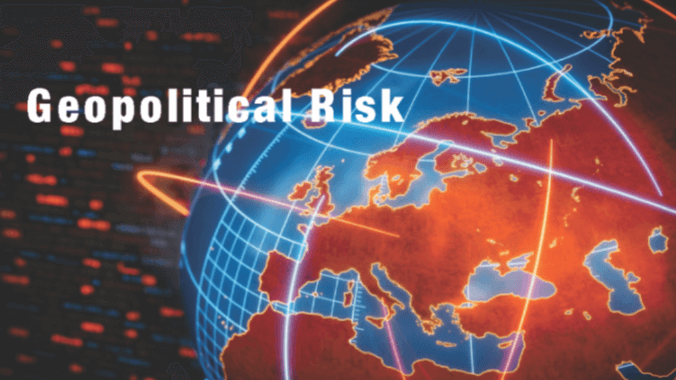How are geopolitical tensions affecting global markets and investment opportunities?

Introduction
In today’s interconnected world, geopolitical tensions are more than just news items; they are potent forces that shape economic landscapes and investment opportunities. The ripple effects of international conflicts and diplomatic stand-offs can be profound, influencing everything from oil prices to technology exports. Understanding these dynamics is essential for investors aiming to navigate through the tumultuous waters of global markets.
Global Economic Impact of Geopolitical Tensions
The Role of Uncertainty in Financial Markets
Uncertainty is the enemy of stability in financial markets. Geopolitical conflicts generate a type of systemic uncertainty that affects investor confidence and can lead to significant market volatility. Investors, uncertain about future risks, may shift towards more conservative investment strategies, affecting liquidity and the availability of capital for companies and governments.
Effects on Global Supply Chains
Geopolitical tensions often result in disrupted supply chains, as seen in trade disputes or embargoes. This disruption affects global markets by increasing costs and delaying production, which in turn impacts stock prices and investment returns in sectors reliant on affected supply chains.
Currency Fluctuations
Conflicts can lead to significant fluctuations in national currencies, particularly in countries directly involved in geopolitical tensions. These fluctuations can affect everything from export-import pricing to foreign debt servicing, thereby influencing global investment decisions.
Sector-Specific Impacts
Energy and Commodities
The energy sector is often at the forefront of geopolitical conflicts, especially for countries that rely heavily on energy exports. Conflicts can lead to spikes in energy prices, creating windfalls for producers and increasing costs for consumers and industries dependent on energy.
Technology
Technology sectors are increasingly affected by geopolitical tensions, as nations focus on technological sovereignty and security. Trade restrictions, such as those seen in the U.S.-China trade war, can limit access to critical components and stifle innovation.
Manufacturing
Manufacturing sectors are particularly vulnerable to geopolitical risks, as they often depend on global supply chains. Conflicts can force companies to reevaluate and sometimes reroute their manufacturing strategies and investments to avoid disrupted areas.
Geopolitical Risks and Their Economic Consequences
Case Studies: Recent Conflicts
Examining recent conflicts provides insight into the direct and indirect impacts of geopolitical tensions on global markets. For instance, the Russia-Ukraine conflict has had far-reaching effects on energy markets, grain supplies, and regional security, influencing investment strategies worldwide.
Long-term Economic Effects
The long-term economic consequences of geopolitical tensions can include shifts in global trading patterns and alliances. These shifts often require businesses and investors to adapt to a new economic environment that may favor different sectors or markets.
Investment Strategies in Times of Geopolitical Uncertainty
Diversification Approaches
Diversification is a key strategy for managing risk in volatile environments. By spreading investments across various geographic regions and sectors, investors can mitigate the impacts of any single geopolitical event.
Safe Haven Assets
Investors often turn to safe haven assets such as gold, the U.S. dollar, and government bonds during times of geopolitical uncertainty. These assets can help protect portfolios from extreme volatility.
Emerging Market Strategies
While emerging markets are often perceived as risky during times of geopolitical tension, they can also offer substantial growth opportunities. Understanding which markets have the political stability and economic fundamentals to weather geopolitical storms is crucial.
Regional Analysis of Geopolitical Impacts
Asia, Europe, North America, Middle East
Each region has its unique geopolitical challenges and opportunities. For instance, Asia faces tensions in the South China Sea and on the Korean peninsula, which can affect regional markets in diverse ways.
Future Outlook and Predictive Scenarios
Expert Predictions
Experts generally agree that geopolitical tensions will continue to pose risks to global markets. However, they also note that these risks can be managed with careful analysis and strategic planning.
Potential Crisis Management Strategies
Companies and investors can develop crisis management strategies that include real-time monitoring of geopolitical developments and flexible response plans.
Long-term Investment Scenarios
Long-term scenarios might involve shifts towards more geopolitically stable regions or sectors less likely to be affected by international conflict
Conclusion
Navigating the complex web of geopolitical tensions and global markets requires a deep understanding of both international relations and economic fundamentals. By staying informed and strategically agile, investors can not only safeguard their assets but also identify and capitalize on opportunities that arise from the ever-changing geopolitical landscape.






